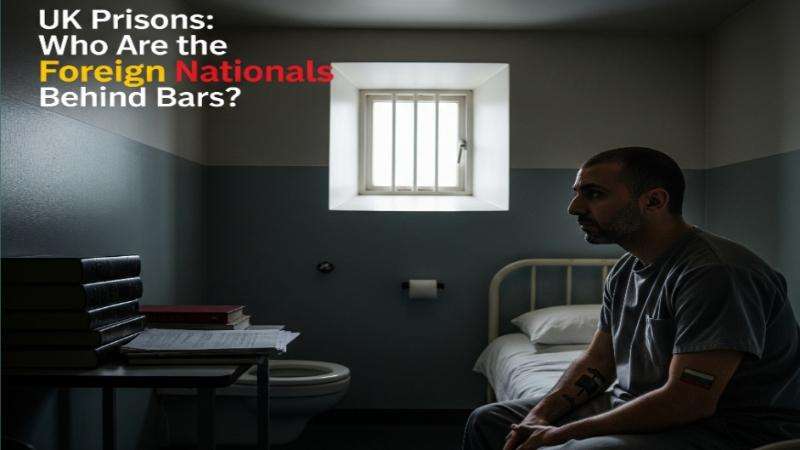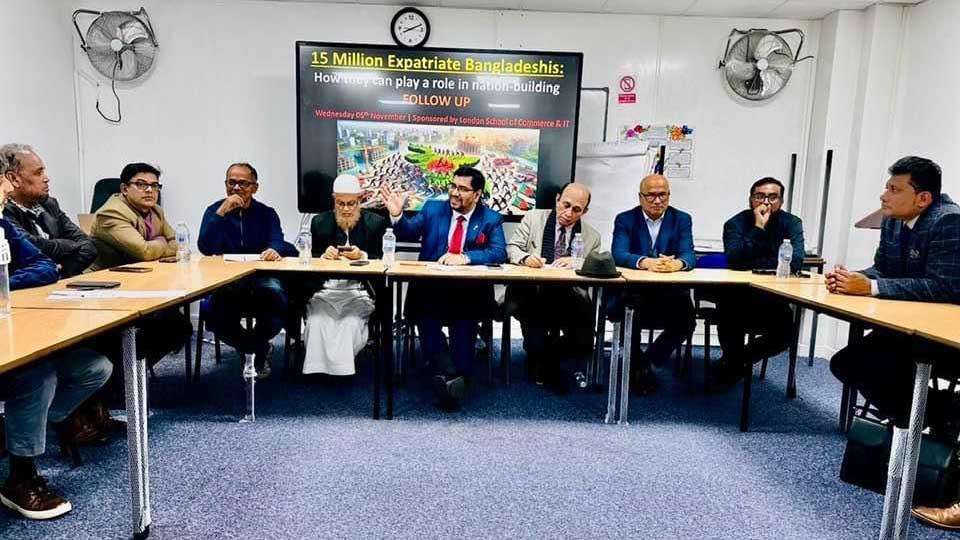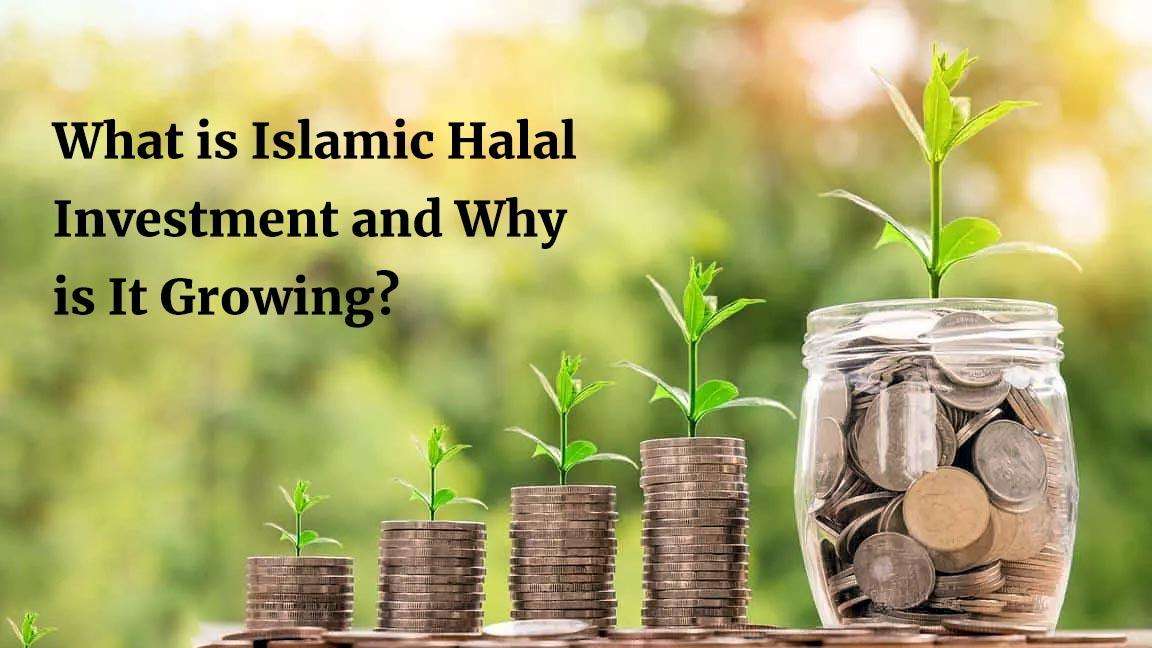Bangladesh is working on increasing multilateral engagement, particularly in economic sector with Brazil, the largest economy of Latin America and an important member of BRICS (Brazil, Russia, India, China and south Africa) as both Dhaka and Brasilia are committed to reach the relations to a new height in new perspective, sources said.
Bangladesh’s multilateral and economic engagements with BRICS members like India, Russia and China have experienced some hiccups after Sheikh Hasina, former dictator Prime Minister of Bangladesh, had to quit power on August 5, 2024 amid massive protest.
In the new environment, Bangladesh is maintaining warm relations with the western countries like USA, Canada and Australia and EU countries as the strained relations with neighboring India squeezed the economic engagement with the top economy of South Asia, sources said.
As the western countries have put economic sanctions on Russia as the latter has invaded some parts of Ukraine, Bangladesh’s economic relations with Russia have also suffered in recent years.
Against this backdrop, Bangladesh is suitably poised to increase economic engagement with Brazil, which is likely to end the year with a GDP of $2.13 trillion, overtaking Canada’s estimated $2.12 trillion, according to the IMF estimation.
By 2026, Brazil could rise one position and become the eighth largest economy on the planet, with an estimated GDP of $2.476 trillion, the IMF argues.
Brazil's economy is the seventh largest in the world, and accounts for more than 40% of Latin America's economy. The country is also the seventh largest consumer market in the world
With GDP per capita of Brazil is hovering around $9,312.00, Bangladesh is interest to increase engagement with the largest Latin American country.
In 2023, the BRICS bloc now accounts for 37.4% of global GDP, compared to the G7's 29.3%
A top official of the commerce ministry while talking to this correspondent said that Bangladesh will explore pros and cons of exporting goods to Brazil market
Brazil is the fourth largest cotton producer and second top exporter while Bangladesh is the second largest cotton importer in the world.
A top leading business of the country while talking to the daily said Brazil is looking at expanding consumer market in Bangladesh with a total population of 180 million
Bangladesh and Brazil have increased their engagement in multilateral sectors especially in the trade and investment as the bilateral trade between the two countries marked a higher growth in recent times, he said
Brazil can import more products including jute and jute goods and leather items from Bangladesh to ensure the trade balance between the two countries, he continued.
As Bangladesh has become an emerging economy in the region and has maintained a steady economic growth over years defying the corona pandemic, Brazil’s President Luiz Inácio Lula da Silva has decided to expand multilateral engagements especially in the trade and investment with the South Asian country, diplomatic sources.
As part of that strategy, a high-powered trade delegation of the Latin American country visited Bangladesh in May in 2023 with an aim to strengthen bilateral trade with Bangladesh.
Meanwhile, Bangladesh’s export to Brazil, the largest market Latin America, during last 2022-23 fiscal year posted some 60 per cent growth over the previous 2021-22 fiscal year, according to data of the Export Promotion Bureau (EPB).
In the 2021-22 fiscal year, Bangladesh exported goods valued at $109.20 million to Brazil. The main products that Bangladesh exported to Brazil were Jerseys, pullovers, cardigans, waistcoats and similar articles; knitted or crocheted, shirts; men's or boys' (not knitted or crocheted), and suits, ensembles, jackets, blazers, trousers, bib and brace overalls, breeches and shorts (other than swimwear); men's or boys' (not knitted or crocheted).
During the 1995-2020 period, exports of Bangladesh to Brazil have increased at an annualized rate of 9.08 per cent, from $15.1 million in 1995 to $132 million in 2020.
In the 2021-22 fiscal year, Brazil exported goods valued $2,245.1 million US dollars to Bangladesh. The main products that Brazil exported to Bangladesh were cane or beet sugar and chemically pure sucrose, in solid form, cotton; not carded or combed, and soybeans, whether or not broken.……..
Brazil was the fifth largest import source of Bangladesh in 2022-23 fiscal year with import recorded at 2592.5 million US dollars (3.80 per cent of total import). The total import of Bangladesh recorded at 68459.9 million US dollars, according to the data of Bangladesh Bank.
Brazil was the eighth largest import source of Bangladesh in 2021-22 fiscal year with import recorded at 2245.1 million (3.00 per cent of total import). The total import of Bangladesh recorded at 75,604.4 million US dollars, according to the data of Bangladesh Bank.
Bangladesh exported goods worth 175 million US dollars (175538064.3 US dollars) to Brazil as against its import of 2592.5 million making a trade gap of overt 2400 million US dollars.
The available statistics show that Bangladesh’s export to Brazil during 2023-24 fiscal year is likely to post over 10 per cent growth, banking on readymade garments, according to the data of Export Promotion Bureau (EPB).
In 2023, Brazil's textile and clothing imports were valued at approximately $5.8 billion, with China being the largest supplier at over $3.4 billion. India and Paraguay were the second and third largest suppliers, with imports of around $270 million and $230 million, respectively.
Brazil's textile and clothing industry had a negative trade balance of $5.6 billion in 2023.
Brazil's textile and clothing exports fell for the first time in six years in 2023. The main reason for this was a decline in exports of cotton fibers, yarns, and woven fabrics. Textile production in Brazil increased slightly in 2023, but clothing production decreased.
Bangladesh exported goods worth 175 million US dollars to Brazil during July-June period of the 2022-23 fiscal year. Bangladesh exported goods worth 181 million US dollars (181426962.5) to Brazil during July-May period of 2023-24 fiscal year.
Former BGMEA Vice-president Shahidullah Azim while talking to this correspondent recently said that Bangladesh should penetrate deeply into the Latin American market, especially in Brazil as the latter is becoming an emerging economy in the Latin America.
“The competitiveness and strength of our textile and clothing industries have increased over the last 40 years since the journey began in the late 70s. Brazil is an important economy in the Latin America. Our exporters have the capacity to tap that market” said Shahidullah Azim
He said an increased export of readymade garments to Brazil market will help reduce widening trade gap with the Latin American market.
Shahidullah Azim, Managing Director of Classic Fashion Concept Ltd, a leading readymade garment exporter, said Bangladesh should start talks on signing FTA with major importing countries to maintain present export growth.
After LDC graduation in 2026, Bangladesh is likely to experience high tariff in major importing countries that may cut competitiveness and export of the country, Azim said.
Brazil imported textiles and clothing worth 5.9 billion US dollars in 2022. China was top exporter with 3476.1 million US dollars, followed by India with 317.7 million US dollars , Paraguay 230.3 million US dollars, USA with 156.3 million US dollars, Vietnam with 151.6 million, Bangladesh with 150.6 million and Indonesia with 138.1 million US dollars.
Some top 10 global brands like Nike of the United States ($31,307M), Louis Vuitton of France ($26,290M), Chanel of France ($19,386 million ), Gucci of Italy ($17,839M), Adidas of Germany ($15,660M), Hermès of France ($14,165M), Hermès of France ($14,165M), Dior of France ($13,152M), Cartier of France ($12,538M), Zara of Spain ($11,049M) and Rolex of Switzerland ($10,711M) dominated in the world markets of textiles and clothing in 2023.
Asif Ibrahim, former DCCI president and Managing Director of New Age while talking to this correspondent said Latin American markers like Brazil, Argentina and Uruguay remain untapped though Bangladesh is the second largest exporter of clothing in the global market. Asif Ibrahim some Bangladeshi garment products are being exported to Brazil through some top global market. Bangladesh hardly directly exports readymade garments (RMG) to Brazil markets. He said that collective efforts of BGMEA, Export Promotion Burau (EPB), Bangladesh missions in Latin America and Latin American missions in Dhaka can play a key role into penetrating into Latin American markets..
Brazil, the largest economy in South America, will leave no stone unturned to increase trade relations with Bangladesh as the latter has become a new economic giant in the South Asian region, said Brazil Ambassador to Bangladesh Paulo Fernandos Dias Feres.
Bangladesh’s economy has been growing steadily over the years and is now the 41st largest economy in the world, according to new data of the International Monetary Fund (IMF).
The economy of Bangladesh is estimated to have expanded at a slower-than-expected pace in 2022-23, said the Bangladesh Bureau of Statistics (BBS), a figure that analysts describe as good in view of elevated inflation, slowing exports and remittances and the ongoing pressure on the country's foreign exchange reserves.
According to Russian President Vladimir Putin, the economic landscape has shifted dramatically since 1992 when the G7 nations accounted for 45.5% of global GDP, while BRICS countries represented only 16.7%.
In 2023, the BRICS bloc now accounts for 37.4% of global GDP, compared to the G7's 29.3%
Meanwhile, Bangladesh is seeking to tap into the untapped readymade garments (RMG) market in Brazil to reduce the widening trade gap between the two countries, Sources said in Dhaka and Brasilia
Brazil was the fifth-largest import source for Bangladesh in the 2022-23 fiscal year, with imports recorded at $2,592.5 million (3.80 percent of total imports), according to data from the Bangladesh Bank. The total import value for Bangladesh was $68,459.9 million during this period.
In the 2021-22 fiscal year, Brazil was the eighth-largest import source for Bangladesh, with imports recorded at $2,245.1 million (3.00 percent of total imports). The total import value for Bangladesh was $75,604.4 million during this period.
Bangladesh exported goods worth $175 million to Brazil, while its imports from Brazil amounted to $2,592.5 million, resulting in a trade gap of over $2.4 billion.
Former BGMEA Vice-president Shahidullah Azim emphasized the need for Bangladesh to penetrate deeply into the Latin American market, particularly Brazil, which is emerging as a key economy in the region.
“The competitiveness and strength of our textile and clothing industries have increased over the last 40 years since the journey began in the late ‘70s. Brazil is an important economy in Latin America. Our exporters have the capacity to tap into that market,” he said.
Shahidullah Azim, Managing Director of Classic Fashion Concept Ltd, a leading readymade garment exporter, said increased exports of readymade garments to the Brazilian market would help reduce the widening trade gap with Latin America.
He further said Bangladesh should initiate talks on signing Free Trade Agreements (FTAs) with major importing countries to maintain present export growth.
In 2022, Brazil imported textiles and clothing worth $5.9 billion. China was the top exporter with $3,476.1 million, followed by India with $317.7 million, Paraguay with $230.3 million, the USA with $156.3 million, Vietnam with $151.6 million, Bangladesh with $150.6 million, and Indonesia with $138.1 million.
Asif Ibrahim, former DCCI president, said Latin American markets like Brazil, Argentina, and Uruguay remain untapped, even though Bangladesh is the second-largest exporter of clothing in the global market. He added that some Bangladeshi garment products are being exported to Brazil through top global markets, but Bangladesh hardly directly exports readymade garments (RMG) to Brazil.
He emphasized that collective efforts of BGMEA, Export Promotion Bureau (EPB), Bangladesh missions in Latin America, and Latin American missions in Dhaka could play a key role in penetrating Latin American markets.
A top official of the commerce ministry, while speaking to this correspondent, said that Bangladesh would explore the pros and cons of exporting goods to the Brazilian market.
Brazil is the fourth-largest cotton producer and second top exporter, while Bangladesh is the second-largest cotton importer in the world.
Bangladesh and Brazil have increased their engagement in multilateral sectors, especially in trade and investment, as bilateral trade between the two countries has shown higher growth in recent times, the official said.
As Bangladesh has become an emerging economy in the region and has maintained steady economic growth over the years despite the pandemic, Brazil’s President Luiz Inácio Lula da Silva has decided to expand multilateral engagements, especially in trade and investment, with Bangladesh, according to diplomatic sources.
As part of this strategy, a high-powered trade delegation from Brazil visited Bangladesh in May 2023 with the aim of strengthening bilateral trade.
Brazil, as the largest economy in South America, is keen to increase trade relations with Bangladesh, as Bangladesh has emerged as a new economic giant in the South Asian region, said Brazil Ambassador to Bangladesh Paulo Fernandos Dias Feres.
Sources said in Dhaka and Brasilia said that Bangladesh is eager to join BRICS under any format, either as a member or a partner country
If BRICS decides to add new members or partner countries, Bangladesh wants to be associated with BRICS anyway
BRICS is an intergovernmental organisation with nine member states: Brazil, Russia, India, China, South Africa, Iran, Egypt, Ethiopia, and the United Arab Emirates.
Meanwhile, overtaking the United States, Brazil is poised to become the world's largest cotton exporter for the 2023/24 season. This shift follows an over 80 per cent increase in Brazilian cotton shipments this season, according to the local exporters' association Anea.
Brazil’s cotton exports are likely to rise further next season, as farmers harvest a potentially record-breaking crop, with further increases expected in 2025-26, opines Miguel Faus, Head, Anea.
He referred to data from the US Department of Agriculture (USDA), which recently raised its forecast for Brazil's cotton exports this year by 300,000 bales to 12.4 million bales, while reducing the US forecast by 500,000 bales to 11.8 million.
Verified by Reuters, a USDA report highlights, Brazil already surpassed the US in terms of cotton production in 2023/24, ranking third globally behind China and India and is expected to maintain its position in 2024/25.
Some of the largest buyers of Brazilian cotton include China, Vietnam, Bangladesh, Turkey, and Pakistan.
Brazil's economy in 2024 is estimated to be around $5,453.82 billion in purchasing power parity (PPP) terms. Here are some other economic indicators for Brazil in 2024:
With GDP per capita of Brazil is hovering around $9,312.00, Bangladesh is interest to increase engagement with the largest Latin American country.
Meanwhile, Brazil's economy held up in the second quarter of 2024, with real GDP growing 2.1% from the previous year. This growth was driven by the services sector, which grew 2.5%. However, farming output fell 3.1% over the same period.
Some say that Brazil's economy is moving in the right direction, with a tight labor market and signs of rebounding business investment. However, others say that fiscal imbalances threaten to stoke inflation and raise interest rates.
Brazil, China, Egypt, Ethiopia, India, Iran, Russian Federation, South Africa, and United Arab Emirates.
In January 2024, the BRICS invited six new countries to join the group: Argentina, Egypt, Ethiopia, Iran, Saudi Arabia, and the United Arab Emirates. The expanded group is tentatively referred to as BRICS+. However, Argentina turned down the invitation, and Saudi Arabia's decision is still under consideration.



_2.jpg)




.svg)



_1.jpg)